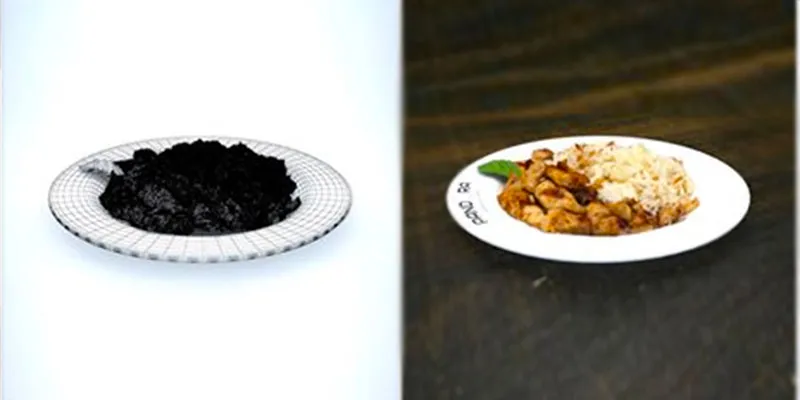Can't decide what to order? Kabaq makes it easy by putting virtual 3D food on the table
Kabaq is changing the future of food ordering with AR app that enables users to look at virtual 3D food, be it in restaurants or when ordering online. The startup has partnered with 15 restaurants and is working on a 3D scanner for solution providers and restaurants.
How many times have you wondered what an item listed on the menu looks like, especially with a cuisine you are not familiar with? Restaurant menus and food ordering, online and offline, haven’t seen too many changes for a while now. But New York-based startup Kabaq wants to change that by offering 3D renderings of food items to help people decide what to eat.
Compared to traditional menus, diners using Kabaq can experience an interactive 360-view of each dish, see correct portion size, visualise ingredients, and be presented with complimentary food items. Of course, this assumes the restaurant is authentic and accurate in rendering the 3D display of the dishes.
Incidentally, the name Kabaq originates from a Turkish word Kabak, which means zucchini.
From real estate to food tech
Alper Guler, co-founder of Kabaq, reveals how the startup came about.
“My partner, Caner Soyer, and I were working on an augmented reality real-estate platform with our first startup, PandoraReality.com. During that time, Caner posted a picture on Facebook and told me that he used photogrammetry to create the realistic (although it didn’t look too realistic back then) 3D model. The same day, DJ Smith, founder of the New York Virtual Reality meetup group, called and asked if we had any AR/VR work related to restaurants for New York Food Loves Tech event. We prepared and presented an initial demo of Kabaq at the event,” he says.

The duo met the PepsiCo Creator Team and worked on some some projects for them.
“In November 2016, we received investment from The Glimpse Group and started our journey,” he says. Glimpse Group is a New York-based fund, incubator and holding company of Virtual Reality and Augmented Reality startups.
Kabaq uses scanning technologies to create the 3D models. These 3D models can be also used as visuals for websites, on social media, marketing materials and in the Kabaq augmented reality app. The team is also creating use cases for home delivery, cookbooks, catering menu presentations and meal preparation services. The startup is working on an API, to make the 3D food library accessible through API for food delivery.
Below is a 3D rendering of Coconut Banana Cream Pie from Tavern62, a restaurant in New York's Upper East Side.
15 restaurants, 150 food items and counting
Currently, Kabaq has partnered with 15 restaurants with around 150 food items on-board and aims to on-board around 100 restaurants in the next couple of months. As of now, they charge every restaurant between US$150-$199 per month.
“We are collecting KPI from current restaurant partners and conducting a research paper in collaboration with two universities. The initial feedback is really positive with the potential for upsell opportunities,” Alper says.
Kabaq is also developing a 3D scanner to be sold to solution providers and restaurants. The company aims to launch this in the next four months. As of now, they shoot pictures of food items in restaurants and process them on their servers using photogrammetry technology. The client server takes the pictures and starts the rendering process. 3D scripts clean the model and their 3D artist gives it the final touch.
Regarding plans for India/Indian food, he says: “I am Turkish and love Indian food/spices but I always have trouble choosing the food that we may like. So most of the time, I choose food items I am familiar with. Hopefully Kabaq will help people like me choose food in ethnic restaurants.”
The global virtual reality (VR) market is expected to reach USD 48.5 billion by 2025, according to a recent report released by a U.S. based market research and consulting company Grand View Research, Inc. The growing adoption of medical and consumer electronics based VR applications is anticipated to revolutionize the market by 2025.







